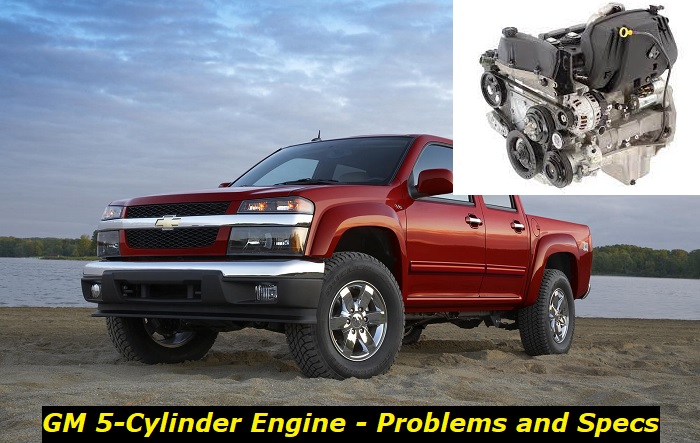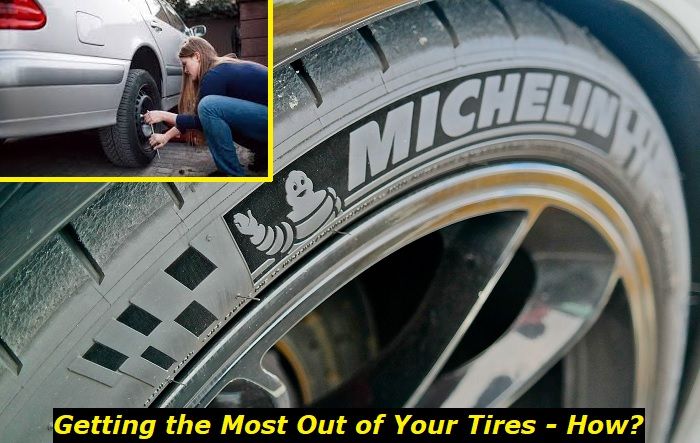If you are one of the lucky owners of the 5-cylinder GM engine - the Vortec 3700 - this article is right for you. Here, I will discuss its advantages, specs, and also several common problems that you need to remember. The LLR engine is the only 5-cylinder mass-produced General Motors engine that was offered in the American market.
Today, I'm looking into the durability and common problems of the Chevy 3.7L L5 LLR engine - one of the legendary straight Vortec engines. It certainly was better than many other powerplants in its family but still, the problem section in this article is going to be pretty long. I should say now that I like this engine and what it can give you in terms of reliability.

Key features and my opinion about the engine
- Production years:2006-2012
- Average lifespan of LLR:260,000-290,000 miles
- Fuel supply type:port injection
- Power range:242 hp
- Fuel efficiency:bad
- Engine block material:aluminum
- Engine reliability score:high
- The most common problems:timing chain stretching, water pump problems, exhaust manifold issues, oil leaks.
What should you know about the 3.7L 5-cylinder engine?
This is the engine that belongs to the Vortec family. It delivers more power than smaller powerplants but ensures better gas mileage than 6-cylinder sister engines. It seems to be pretty good but GM manufactured it only from 2007 to 2012 and didn't install it in many car models. Actually, the engine didn't have that many common issues and it's not clear why it was discontinued so fast.
The 3.7L L5 engine was mainly used in two GM models - Chevy Colorado and GMC Canyon. Also, Isuzu used it for two model years in its trucks and it was installed in the Hummer H3 for several years. The engine falls into the Atlas category that embraces only straight powerplants and it has some serious issues that are common for the entire Atlas series.
Here's what you should know about it:
- this is a straight-5 3.7L engine with balance shafts that can develop 242 horsepower and 242 lb-ft of torque;
- the entire Atlas family shares the same pistons, rods, valves, and many other parts, they differ by the number of cylinders and stroke length;
- the exhaust side of the engine has the variable valve timing system which allowed GM to not include EGR for emission control;
- the engine block and head are made of aluminum, the block is fitted with iron cylinder liners that can be replaced;
- simple multi-point fuel injection is an important advantage - it's easy to maintain and it almost never fails;
- the timing system is driven by the chain which is good for durability but can be bad for maintenance costs;
- the average gas mileage is about 17 MPG in the Colorado which is not that bad for a big truck and such engine displacement.
The engine is pretty simple, its design doesn't give any instant ideas about the possible problems. Yes, in high-mileage units, you will have problems with the VVT and the chain will have to be replaced. But, at first sight, the engine looks really good and doesn't cause any serious concerns.
Unfortunately, the L5 engine still has some common problems that make its reputation not so clear. I should also say that 242 horsepower doesn't seem that good for the displacement. You may suppose that for a truck, torque is more important. But again, you would expect more than 242 lb-ft from such an engine.
What's the lifespan of the 3.7L 5-cylinder GM engine?
This Chevy engine is pretty durable. It has little power for this displacement and this helps the machine to live much longer than expected. I believe these engines can last about 300,000 miles with proper care and even more than that if the owner is ready to invest some money in overhauling.
The lifespan depends on the maintenance. You may need to change the oil more often because the engine is prone to forming a lot of buildup types and needs to be properly cleaned. Also, the way of driving your truck will also change the durability of the machine. If abused or made to tow more than allowed, this engine is going to fall apart much earlier than you may expect.
Anyway, the LLR engine has a lot of potential miles in it because it can be repaired even after very serious problems like overheating or chain damage. Although the repair will cost you a lot, it's not impossible to get it back to life.
What are the common problems with the 3.7L 5-cylinder engine?
This engine is not super problematic, but it still has several common issues that you may need to know about. Some of them are just high-mileage problems and they will bother you after the engine hits 200K miles. But some may develop much earlier than that. I have a lot of statistics now in my hands to clearly figure out the most common issues that may happen with this engine.
Here they are:
1. A lot of different buildups
Even though the injection is not direct, the engine develops a lot of sludge, soot, and other buildups. So, you should change filters and oil more often to avoid clogging of important parts. It's vitally important to use high-quality oil with the recommended viscosity.
If the engine has been maintained poorly and is clogged, it will need proper cleaning. For this, the mechanic will need to take the head off and clean the engine physically. These buildups are one of the most common problems with the LLR engine that affects its performance and lifespan.
2. Ignition issues
The coil-on-plug ignition is pretty simple to maintain and repair. But coils and plugs in the 3.7L engine are worn out very quickly. Also, they cost quite a lot. So, even if you change them on your own, you will still spend some money on the repair.
Ignition coil replacement is one of the routine procedures and I recommend you do that on your own. In the course of several years, this skill will obviously save you a lot of money.
3. Super low gas mileage
When you are buying a truck powered by the 3.7L engine, you don't expect it to be economical. It's certainly not made for fuel economy. But while GM claimed that this engine should have about 17 MPG, on average, it may show about 12-13 MPG in real life.
In heavy city traffic, the consumption will grow and the gas mileage will drop to 9-10 MPG which is ridiculously bad for the 5-cylinder engine with such low power.
If you are getting so poor gas mileage in the LLR engine, you should check it and maybe change your driving style. The engine hates it when you rotate it to high speeds and it wants to work in the low range of RPMs.
4. Oil consumption
Like all other Atlas engines made by GM, the 3.7L L5 engine burns some oil. It starts consuming oil at about 50,000 miles and the consumption keeps growing. If your 5-cylinder machine burns more than a quart of oil per 1000 miles, it's time to look at it carefully.
In most cases, you will need to replace the valve seals, but sometimes, the thing is in the piston rings. The repair may be quite expensive and long. Unfortunately, there is no other way you can deal with oil consumption in these engines.
5. Engine head problems
I should say that all Atlas engines have huge problems with their heads. And the LLR model is one of the not-so-problematic engines in this series. But still, its head may overheat and start leaking fluids between the head and the block. Also, the valves may get clogged and contaminated quite fast.
Also, these heads sometimes develop a common problem of the valves not sitting properly in certain cylinders. The engine starts misfiring and losing compression and it needs quite expensive repairs.
In many cases, your engine will need head replacement. Unfortunately, it's not a cheap repair at all for the 5-cylinder GM machine.
How can you prolong the life of the LLR engine?
There is no way to prevent some problems like chain stretching or spark plug issues. You can't do anything to prevent valve problems in the 3.7L Atlas engine. But you may think about the overall health of the engine to prolong its life.
And here's what you can do:
- change the oil more often than the manufacturer recommends;
- change filters twice more often than recommended in the manual;
- have the engine inspected once every 30K miles to avoid minor issues;
- don't ignore minor problems because they may grow into very serious issues;
- avoid DIY repairs - they may damage the engine;
- only buy OEM parts, and avoid cheap aftermarket products for this engine.
- avoid abusing the engine and making it haul or tow more than it can.
Final thoughts
I believe now you have a full understanding of what is the 3.7L 5-cylinder GM engine. This is a good machine but it comes with its set of problems that you need to remember. I still think that this is one of the greatest truck engines in Chevy history because it's very durable and capable of towing and hauling quite a lot of weight.
All problems that it may develop are repairable and you can get rid of them just by carefully inspecting and repairing the engine in a good shop. If you own the 3.7L L5 engine, be informed that it can go up to 300K miles with good maintenance and some care from you.
About the authors
The CarAraC research team is composed of seasoned auto mechanics and automotive industry professionals, including individuals with advanced degrees and certifications in their field. Our team members boast prestigious credentials, reflecting their extensive knowledge and skills. These qualifications include: IMI: Institute of the Motor Industry, ASE-Certified Master Automobile Technicians; Coventry University, Graduate of MA in Automotive Journalism; Politecnico di Torino, Italy, MS Automotive Engineering; Ss. Cyril and Methodius University in Skopje, Mechanical University in Skopje; TOC Automotive College; DHA Suffa University, Department of Mechanical Engineering






Add comment